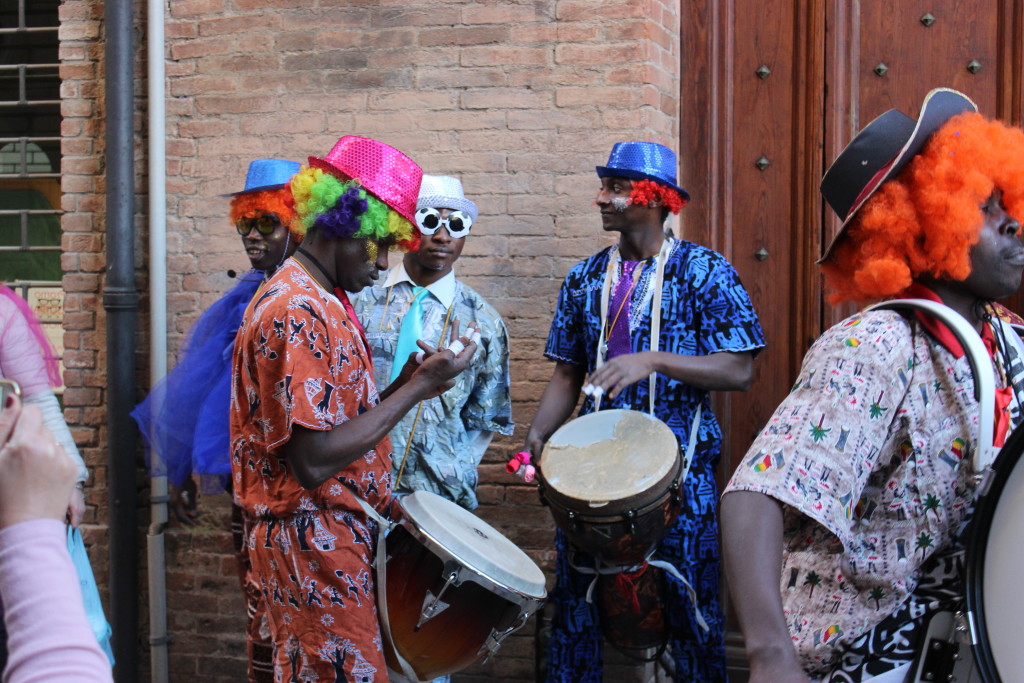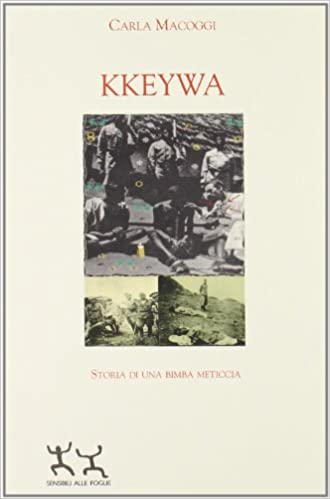First published in the “On she Goes” journal with the title “Shailja Patel on How the Empire Travels Back- Exploring migrant narratives in new forms”.
Bookmarked is a series of interviews with women and nonbinary writers of color about their novels and memoirs of navigating lands, languages, and themselves—and most of all—about taking up space everywhere we go.
If and when colonialism is acknowledged in mainstream narratives it is often done in the past tense, exposing one of its key functions: forgetting. But more and more, women and nonbinary writers of color are telling stories that disclose the colonial trauma that moves with us from generation to generation, from place to place. Migritude, by Shailja Patel, is one of those stories. Originally a stage play that encompassed history, poetry, and performance, and using saris as the tool of cultural memory that joins them together, it tells hard truths about the British Empire’s conquest of South Asia and parts of Africa, and specifically how women from these places wear its scars.
Kenyan poet, playwright, and activist Shailja Patel is known for connecting shared histories of oppression across continents and distilling them into prose while doing justice to their complexities.
The monologues in the performance of Migritude underscore her passion for using memoir, particularly the personal histories of women, as a part of the process of protest, to “amplify and valorise the care economies that sustain and repair the bodies on the street,” as she said in another interview. Because no one else can speak for them; because these are the stories that she, and women-of-color creators like her, have inherited. In this interview, Shailja and I talk about subverting the colonial gaze of travel writing, the role of migrant narratives in the Trump era, and the benefits of nontraditional story structures.

Migritude cover art courtesy of Shailja Patel
Travel writing was crafted, very intentionally in my opinion, to be this seemingly apolitical space. I find it to be the opposite. How do you feel about centering the narratives of women of color in a literary space that they are underrepresented in and can feel like they are unwelcome to?
The best travel writing, in my opinion, is writing that subverts the genre by reversing the gaze. So instead of seeing a culture, a place, through the lens of the privileged tourist, we turn the lens on the tourist, and make them the Other for our critical scrutiny. A brilliant example of this is Decca Aitkenhead’s travel piece from Thailand, “Lovely Girls, Very Cheap,” published in Granta.
Migritude is very untraditional in structure but at no point did I, as a reader, feel like I couldn’t trust you to take me on that journey through personal and political histories. Were there other writers or works of art that inspired you through this process? And do you think nontraditional narrative structures benefit writers of color especially?
The form of Migritude was dictated by what needed to be said. I was coming from spaces of slam poetry, political economy, body as text, text as body, how much can you fit into a suitcase. Writers I was thinking with included Arundhati Roy, Gloria Anzaldúa, Eduardo Galeano, Stella Ngatho, Lucille Clifton. Formalism has its uses. Adrienne Rich likens it to asbestos gloves; a strategy for handling dangerous materials. On the page, as on the stage, you choose the tool that best conveys what you want to get across. And you always want as many choices as possible.
The term migritude is a riff off of négritude, the literary movement and philosophy celebrating Blackness in opposition to colonialism. I know you’ve been asked this many times in different ways, but as we discussed this in my POC Travel Book Club, we were still left wondering if this infers that the migrant experience lives outside of the Black experience. What have been some of the receptions from Black folks on this term?
The term migritude has been enthusiastically received on the African continent. Obviously, not all Africans are migrants, but it’s important to remember that there is massive intra-African migration between the 54 countries that make up Africa.

Photo by Heather Merrill.
In your performance of Chapter 10, “The Sky Has Not Changed Colour,” on the Maasai rape victims of British soldiers in military training, you rip out pages from a tourist photo book of the Maasai and hand them to the audience as you say, “They are the noble savages, staring out from coffee table books. Africa Adorned. The Last Nomads. Backdrops and extras for Vogue fashion shoots. Stock ingredients for tourist brochures. The Maasai are a global brand.” What are you asking of the audience in handing them all of this?
First, I’m breaking theater’s fourth wall—the wall between the stage and the audience. That makes them a part of the piece, no longer just spectators. Second, I’m making them complicit in the commodification of a people—by having them consume the images. They’re holding the brand, in their hands. It’s a visual, material object. What are they going to do with it?
What do you think would be different about travel writing if more migrant narratives like yours were given space within the genre?
The phrase that comes to mind is “The Empire Travels Back.” I think it would trouble the genre, as it needs to be troubled, by creating critical discomfort in readers and writers, in publishers, reviewers, booksellers. It would force us all to think harder about the economics and geopolitics of what we call “travel”: who gets to define it, to pursue it, to write about it, and how.
What do you envision the roles of migrant narratives to play in the Trump era?
To help us find each other and resist together. By “us,” I mean all those on the planet who work towards global justice, work to dismantle empire, believe in a world beyond capitalism and militarism. Migrant narratives are maps of a livable, shareable world.
This September 2017 interview on South African radio with Shailja Patel gives an idea of the breadth of her artistic work, thinking and activism.

Kenyan poet SHAILJA PATEL was trained as a political economist, accountant and yoga teacher. She honed her poetic skills in performances that have received standing ovations on four continents. Her US publishing debut, Migritude, based on her acclaimed one-woman show, went to #1 on Amazon’s bestsellers in Asian Poetry, and was a Seattle Times bestseller – extremely rare for a poetry collection. Patel has been African Guest Writer at Sweden’s Nordic Africa Institute and poet-in-residence at the Tallberg Forum, Sweden’s alternative to Davos. She has appeared on the BBC World Service, NPR and Al-Jazeera. Her work has been translated into 16 languages. Honours include a Sundance Theatre Fellowship, a Creation Fund Award from the National Performance Network, the Fanny-Ann Eddy Poetry Award from IRN-Africa, the Voices of Our NationsPoetry Award, a Lambda Slam Championship, and the Outwrite Poetry Prize.
Patel is a founding member of Kenyans For Peace, Truth and Justice, a civil society coalition which works for an equitable democracy in Kenya. In 2011, the African Women’s Development Fund named her one of Fifty Inspirational African Feminists for the 100th anniversary of International Women’s Day, ELLE India Magazine selected her as one of its 25 New Guard Influencers, and Poetry Africa honored her as Letters To Dennis Poet, continuing the legacy of renowned poet-activist Dennis Brutus.
Photo from Split This Rock.
The featured image is a photograph by Priscilla Patel, an Australian professional photographer. For permission to publish her picture please contact her at pris16@live.com.au To request prints of her work ize 60 x 20 cm australian $25 +postage size 100 x 40 cm Australian $60+postage.














































![Crowdfunding for [DI]SCORDARE project](https://www.thedreamingmachine.com/wp-content/uploads/2018/11/46170150_6114126739235_51Discordare6033064035418112_n.png-360x275.jpg)





